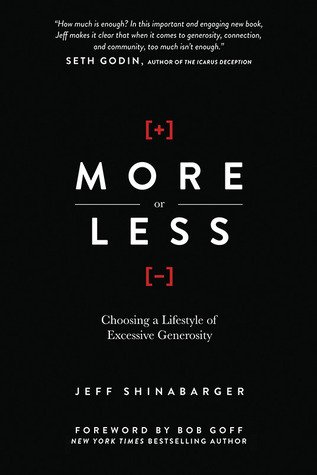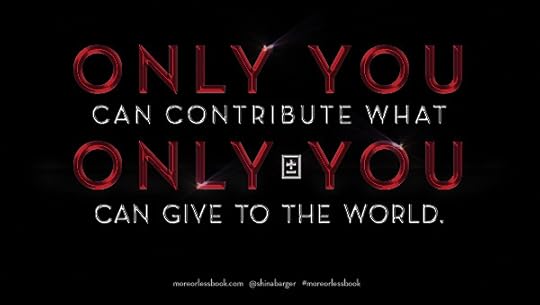What do you think?
Rate this book


272 pages, Hardcover
First published March 1, 2013
There was a time, not so long ago, when the polite answer to the question "How are you?" was, "Fine." It seems that busy is the new fine. We look at one another with that shake of the head, sideways smirk, and glossy eyes, proclaiming our busyness. This shared response succinctly identifies a recent cultural shift: we now determine the significance of a person by how busy they are. Somehow, busy has become better than fine. It seems especially highlighted since the economic downturn. Busy shows that we still have a job and things to do, which is a positive answer amidst the endlessly looping, negative news cycle.
The problem is this: busy is not better than fine. Just because I'm busy does not mean I'm fine. And when it comes right down to it, often busy means that I'm not fine at all. What we're really saying with one simple word is, "I can't keep up with everything in my life. I actually can't keep up with any of the things in my life. But that makes me important, doesn't it?"
Often the first ball we drop is our relationships. Being "busy" quickly becomes a barrier or excuse in the way of true community. I am busy, and many of my friends know that I am busy. When the only answer I ever give them in response to the question "How are you?" is, "Busy," this communicates that I don't have time for them. When I constantly say, "I'm busy," I communicate to others that "I don't need you right now." Most of our friends pick up this subtle message and stay away.
What we often realize too late is that our "busy" answer is actually a choice not to engage in our community. We choose to do other stuff over hanging out with our friends. If I continue to tell myself the lie that busy is good, I slowly enter into more of an isolated and a self-centered existence.
...if we are too busy to engage in relationships, we face a larger problem. When I respond and tell you I am too busy, too often I actually need your help. Often in those times when we most need a deep relationship, instead of pursuing that relationship, we embrace our task list and avoid the comfort and support that true friendship can offer. And the result of being extra busy, ironically, is loneliness and depression.
Presence is not fast, big, or cheap. You cannot replace presence with someone or something else. Presence is an essential element that we all need and desire in our deepest relationships. It's unspoken. It's true. It's the greatest encouragement anyone can ever receive or give. Presence is a physical expression of love in the midst of a culture that never stops—it is to stop and be with someone that matters.
Fourth, Shinabarger’s analysis of generosity is secular—by which I mean: a compassionate Hindu, Muslim, Buddhist, pagan, or atheist could agree with … everything in this book. I find this troubling. While it is certainly true that those outside the faith can be generous and do good things, Christians’ lives should be pervaded by the Gospel such that it is impossible for us to really explain why we do any good thing without reference to Christ the Source of All Good. Christ is the reason we can do good things, He is the reason our sinful hearts want to do good things, and His is the power that enables us to do good things. Yet Shinabarger’s exploration of generosity seemed to be, well, largely secular. Faith lifts right out without disturbing the substance of his points.Full review available here.
For these reasons, I would argue that Shinabarger’s book, while practically useful, is not actually a Christian book. So if you’re looking to simplify, make do with less, or give more, then by all means read this book. Even better, read it with a friend and engage with the material. Open your Bible and see where Shinabarger is right, and where he’s wrong. What does the Bible have to say about generosity? What sins in your life keep you from obeying those commands, and how can you fight those sins? How does the Gospel inform our attitude toward our possessions, our food, our clothes, and our time? How can Christians spur one another on to love and good deeds in these areas? These questions, and many more, are well worth asking. Shinabarger doesn’t ask them, but I appreciate him at least starting the conversation.

If we never accept our true selves, we will always come up short on what we can become and how that could shape the lives of others.
